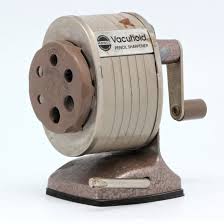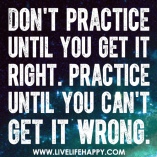Writing Tips: Sharpening Your Mental Pencil
“I am approaching the heart of this book with two theses, both simple. The first, is that good writing consists of mastering the fundamentals (vocabulary, grammar, the elements of style) and then filling the third level of your toolbox with the right instruments. The second is that while it is impossible to make a competent writer out of a bad writer, and while it is equally impossible to make a great writer out of a good one, it is possible, with lots of hard work, dedication, and timely help, to make a good writer out of a merely competent one.” -Stephen King, On Writing: A Memoir of the Craft.
I wanted to start with this passage for two simple reasons. One, is that it’s true, and the second is that it’s a great highlighter for the phrase: practice makes perfect. The opinion of what makes a good writer or bad writer is usually up to the rules of proper grammar, vocabulary, and structure, as well as the literary community, but in the end, it’s really up to whoever reads the story. They decide who they like or don’t like. Great writers, on the other hand, are the natural prodigies, who change the craft through their work, and are recognized and respected as such. In my opinion, one cannot really be defined as a great until the day their work is complete, which for most writers is when they are dead and buried. A great writer’s work spans over a lifetime.
I won’t really go into the four levels Stephen King discusses, or his reasoning behind each, as I suggest you read it for yourself (copyright infringement may also be a factor, but I like the first one better). King’s book is called: On Writing a Memoir of the Craft, which I have recommended once before, and still urge you to check it out if you want to sharpen your writing.
That’s what we’re here to do today. We’re here to sharpen your mental pencil. How does a competent writer become a good one? What are the drills? Are there any drills?
Funny you should ask, because there are. There is an infinite number of ways to practice, and they span through all types of writing. This rule really applies to everything. You can practice just about anything you want to, but you have to really want to first. Then you get creative, and find a way.
As for writing, here’s a few of the most conventional, and effective ways to practice:
- Practice With Prompts – This allows you to get a free starting point to write a scene, or a thought down that you wouldn’t have otherwise come up with on your own. Try and look for the most diverse prompts, and do things that you wouldn’t normally do, in order to learn new styles. When you’re just writing prompts, and not focusing on even completing a full story, it’s a relaxing way to learn. Often, you’ll find that the prompts you start will turn into excellent stories. I tell yah’, that relaxed mind thing does wonders.

- Read Outside of Your Spectrum –A given, but it should be emphasized anyways. If you only read one author, or even one genre, you don’t get a feeling for different styles. Now, I know it’s tough to pick up a book out of your niche, but you’ll be surprised how books from areas you wouldn’t expect will satisfy your reader craving. If you’re a horror fan, but want to learn how to be better with romance, find a paranormal romance, or supernatural romance, or whatever. In the end, labels are useless anyways. All they show are the guide-lines in which a book, kind of, follows, and for the most part, I suggest you ignore them and look for what lies within the text. They are stories; they are worlds, and it’s tough to put guide-lines on a world.

- Write Down New Words – Not only should you write them down, you should keep them somewhere safe, and keep them handy until you have a good page or two to check on later. If you understand the context of the word you’re hearing, that’s fine. Then don’t rush to look up the word if you don’t find it’s a necessity, but write it down so you know the meaning later on.
These words may come from different places: You may read them in a book, or hear them on the street. It could be part of some lyrics you hear, or a spokesperson talking on television, or a public speaker at an event. It really doesn’t matter where you hear it, as long as you write it down. Remember it, if your memory is good, however, I find writing things down is the best way to remember them, and that sometimes I don’t even need to look at the notes to remember them clearly. When you write things down, it leaves a bigger impression on the mind. You may not need the actual physical notes, but you sure as hell need to write them down.
After you’ve got that list, sit down with a cup of coffee, or with your breakfast, and replace that morning newspaper with a dictionary and your list. Go through all the words you didn’t understand, find the proper meanings, and write them down. Remember them, understand them, but don’t force them into your manuscript. Use them in those writing prompts your practicing, but don’t push them into anything substantial just because you learned it and want to use it. Let them soak in your mind, and they will flow naturally onto your page, just like everything else you learn.
This is not only a great way to increase vocabulary, but also an opportunity to hear the distinction between words actual people use, and words a thesaurus uses. The extra paid attention has its own benefits, such as learning new mannerisms and all that good schtuff, which was covered in the blog, Writing Tips: Creating Your Characters, posted last week.
- Learn What You Need To Work On, And Practice, Practice, Practice – Shitty with characters? There’s a drill for that. Dialogue not sounding real enough? There’s a drill for that. Not good with overall plot development? Yup, there’s a drill for that too.
The best part about being a writer is that you can get creative with what type of drill works best for you. Maybe it’s just a couple pages of dialogue, or maybe you need something a bit more, in which case you write a little backstory and then get into it. Either way, no matter what your fault, practice makes perfect, and it doesn’t matter what you need to practice, there is always a way to do it. Get creative.
- Accept Criticism – This is what really separates bad writers, from competent writers and good writers. Bad writers are those unwilling to change because they think their writing is perfect, and they wouldn’t have it any other way. They are insulted when someone questions their work, or how they write, and they often read less than most casual book lovers.
Now, it’s OK to be a little insulted. You’ve spent time with your work, and you put your heart into it. If someone questions it, you’re going to feel violated, but you still need to listen to what’s being said, so you can learn, change and improve.
Yes, there will be some bad advice, and yes, you will probably take it from time to time, and learn the hard way. And yes, sometimes there will be good advice, and yes, you will ignore it once in a while, and learn the hard way then too. The important thing is that you do learn, as long as you’re willing to put the time in, and the ear out, to do so.
That’s all I got for now (if I gave you all my tips than I would have nothing to talk about later, now would I?) but I hope some of these ideas help you, as conventional as they are, they all work. The simpler things usually do. What I like better is that four of these are flexible, and that’s good, because the writer should be flexible too. The fifth is the obvious one that you should never break. Always be willing to accept criticism so you can improve. You’ll learn how to filter out the good critics from the bad as time goes.
I want to end off by apologizing for the lateness of this post. It was a Murphy’s Law kind of day (personally I think someone should find the bugger and lock him up already, before he does anymore damage) and well, I’m writing this now at 2:00 a.m on Thursday morning, when it was scheduled for Wednesday. For that, I apologize, but Physiotherapy (which was expected), along with a brush fire at the farm getting out of control (which wasn’t), and other mishaps I’d rather not complain about, all got in the way. Hey man, what can you do? Life happens sometimes, and life can be a real time consumer.
Enjoy the rest of your week and never stop writing.
~~~
-Adam Gainer
#NeverStopWriting
Liked this post, or want to suggest the next one?
Have a question to ask, or do you just plain want to talk?
Then leave a comment below, and I’ll be sure to get back to you.
Subscribe to the blog for more writing tips, stories, and thoughts.
Or you can also:
Follow Me On Twitter : http://www.twitter.com/Adam_Gainer
Or Like My Page On Facebook: http://www.facebook.com/AuthorAdamGainer




Very good post with tons of info. Well done!
LikeLiked by 1 person
Thanks Ron! I’m glad you found it useful. I have thought of quite a few other methods since posting, and will do a follow up blog later on in the year.
Have a good one, Ron, and thanks for reading.
LikeLiked by 1 person